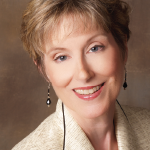Q: What’s your hope for the future?
A: Continued growth, growing interest in arthritis. And I hope there’s actually more interest in osteoarthritis, because currently there’s a lack of effective treatment. People get osteoarthritis and are told they need to lose weight and exercise. Other than taking anti-inflammatory drugs, they have to wait until quite serious effects before they’re a candidate for hip or knee replacement.
ARHP Lifetime Achievement Award
 Teresa Brady, PhD
Teresa Brady, PhD
Senior Behavioral Scientist, Arthritis Program, CDC, Atlanta
Background: Scores of rheumatologists have been mentored by Janice Pigg, a pioneer in rheumatology nursing. But Dr. Brady met Ms. Pigg as a 21-year-old patient, newly diagnosed with RA. That helped set her on a career path that intersected with key pivot points in how this country treats people with arthritis.
As a volunteer with the national Arthritis Foundation, she chaired the task force that developed the original Quality of Life Action Plan in 1993. She co-led the group that developed the National Arthritis Action Plan: A Public Health Strategy, a 1998 document that helped spur federal funding and development of the CDC Arthritis Program.
Dr. Brady has also become the unofficial historian of the ARHP, writing “The History of the ARHP” for the ACR’s 75th anniversary book.
She holds a PhD in psychology from the University of Minnesota and a Bachelor of Science in occupational therapy from the University of North Dakota.
“I found the blend of occupational therapy and the social and emotional factors inherent in psychology was the perfect foundation for focusing on chronic disease self-management,” she says. “And nowhere are self-management skills more essential than in arthritis.”
Q: What’s the most challenging aspect of today’s rheumatology?
A: Taking time to remember and address the human side of healthcare. As we all get more time pressured and new technologies and medications come to the fore, it’s easy to get enchanted with these new modalities for care and lose sight of the fact that even the best medication or best therapy routine doesn’t work unless the person with arthritis figures out how to integrate that therapy into their life, day in and day out.
Q: What’s the most fulfilling part of your job?
A: The opportunity to take scientific findings and translate them into clinical or public health action that makes a difference in peoples’ lives.
Q: What’s the speech you’d give to a group of peers at a scientific meeting or first-year residents?



